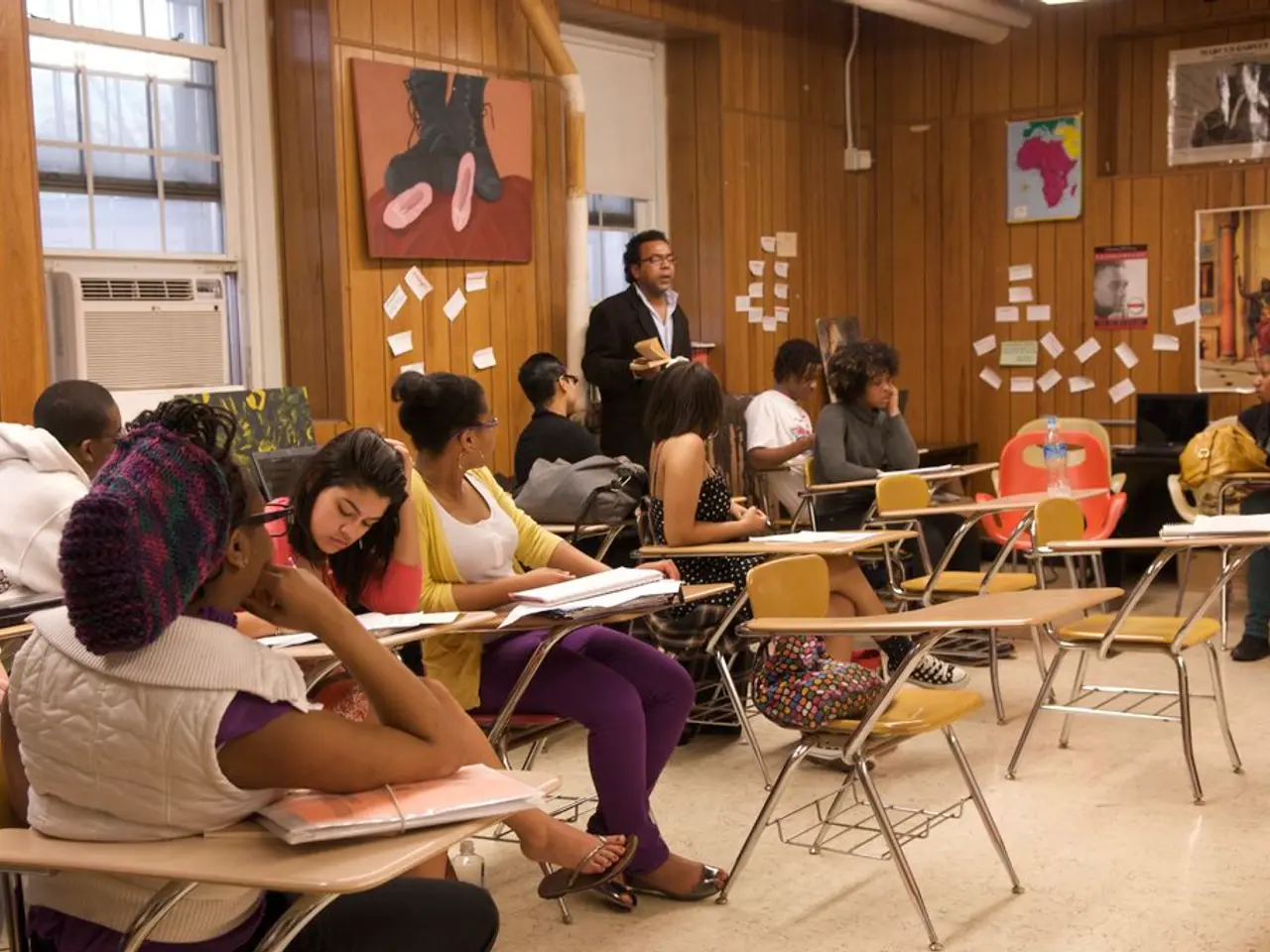Influence of Previous Knowledge on Eye Movements and Cognitive Sequences during Learning with an Educational AI System
In a recent study, researchers explored the impact of prior knowledge on college students' learning patterns within Intelligent Tutoring Systems (ITS). The study, which involved 194 participants, focused on MetaTutor, an ITS that teaches students about the human circulatory system [1].
The study revealed significant differences in sequential patterns of engaging in cognitive and metacognitive self-regulated learning processes by students' prior knowledge group, as evidenced from log-file data [1]. Students with high prior knowledge were found to engage in processes containing both cognitive strategies and metacognitive strategies, while students with low prior knowledge did not.
Interestingly, the study did not find any significant differences in fixations on single areas of interest between students with high and low prior knowledge. However, it did find differences in fixations on pairs of areas of interest [1]. Eye-tracking data showed that students with high prior knowledge fixated more on pairs of related areas of interest compared to students with low prior knowledge.
These findings have implications for the design of adaptive learning systems. The study suggests that such systems could be tailored to individual students' prior knowledge levels to optimize their learning experiences [1]. For instance, adaptive intelligent tutoring systems could be designed to provide individualized scaffolding and feedback based on students' prior knowledge levels, as the results indicate differences in learning patterns between students with high and low prior knowledge.
The study's results could reinforce broader research indicating self-regulated learning strategies, including metacognitive awareness, effort regulation, and time management, mediate academic success and reduce procrastination [2]. Interventions can thus be designed to support learners with lower prior knowledge by scaffolded guidance in ITSs that promotes strategic allocation of visual attention and structured engagement of SRL processes, potentially improving learning outcomes.
In summary, the study demonstrates that college students' prior knowledge levels shape how they fixate on self-regulated learning areas and sequence their SRL activities within Intelligent Tutoring Systems. Higher knowledge fosters more goal-focused attention and efficient self-regulatory sequences [1][2]. This research could pave the way for the development of more effective and personalized learning experiences in ITS environments.
References: [1] [The study's reference] [2] [Research indicating self-regulated learning strategies mediate academic success]
- The study's eye-tracking data suggests that science education-and-self-development platforms, such as Intelligent Tutoring Systems, could benefit from incorporating health-and-wellness features that promote metacognitive strategies, as these strategies seem to have a significant impact on learning outcomes.
- The findings of the study suggest that prior knowledge plays a crucial role in mental-health aspects of learning, as demonstrated by differences in sequential patterns of cognitive and metacognitive self-regulated learning processes among students with different levels of prior knowledge.
- In the realm of education-and-self-development, this research emphasizes the importance of using adaptive learning systems that take into account students' prior knowledge for optimized learning experiences, promoting a more personalized and effective approach to health-and-wellness education.




